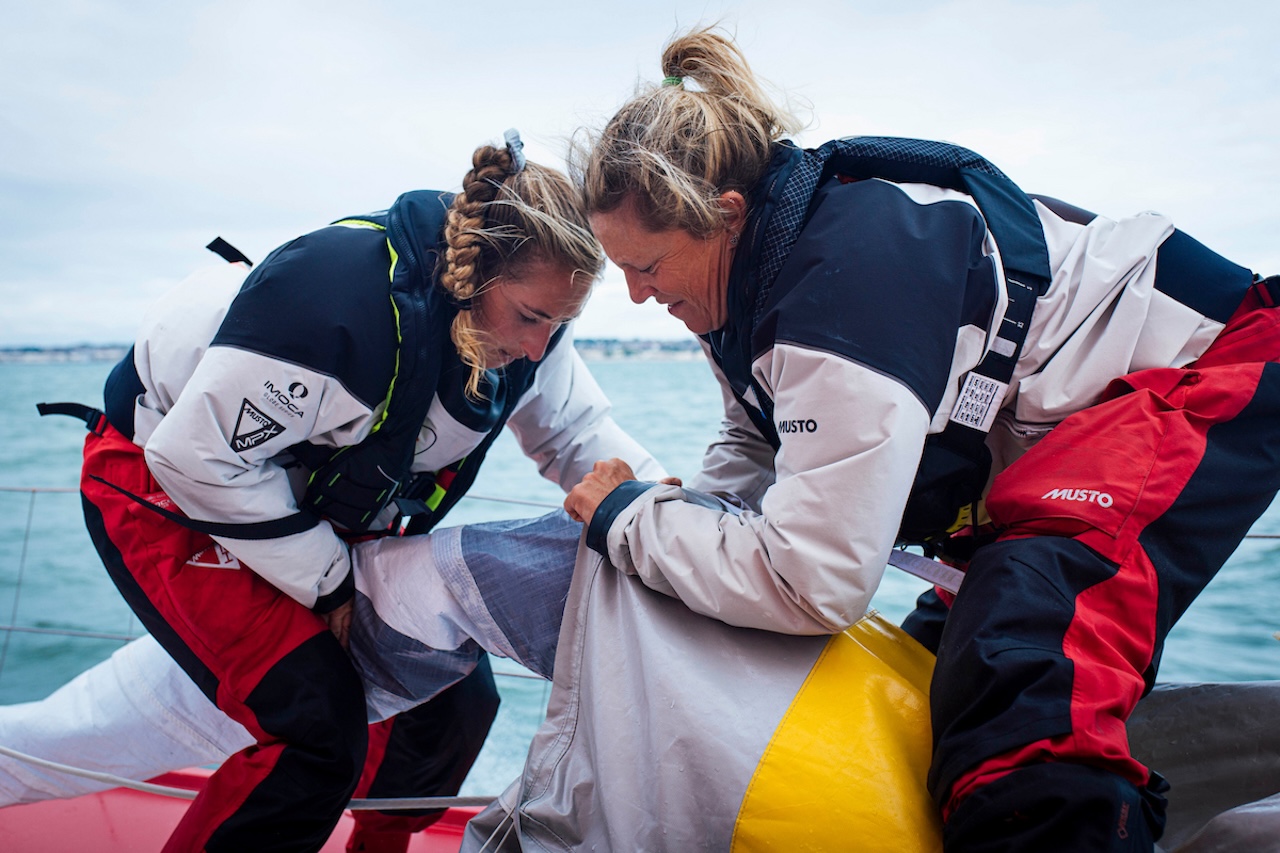IMOCA and Magenta - Expand Female Leadership - Vendée Globe 2028

The Female Leadership Development Programme (FLDP) – a collaboration between IMOCA and the trailblazing Magenta Project, with support from 11th Hour Racing – was launched in May 2024 to address a long-standing issue: too few women in technical and leadership roles in sailing.
Its first year proved that change is possible. Four women were embedded inside IMOCA teams in mentoring placements, shadowing skippers, managers and boat captains. Among them was Cole Brauer, the American sailor who made history in 2024 as the first U.S. woman to race non-stop and alone around the world. She was mentored by Team Malizia skipper Boris Herrmann, and that placement has since grown into a professional role – Brauer now races with Malizia in The Ocean Race Europe.
“I was the first placement,” Brauer explained. “People soon started saying, ‘if we can do this with one woman, why not more?’ This programme is different because we are actually being paid – not just used for free labour. That’s why it works.”
Scaling Up for 2025 and Beyond
What began with four short placements is now scaling up dramatically. This season, the FLDP aims to involve a quarter of the IMOCA fleet, giving women direct access to roles as team managers, technical directors, skippers and boat captains. Within three years the programme hopes to reach at least 10 teams, and by 2028, 75% of IMOCA campaigns.
A new Brittany-based initiative will also be launched to connect the programme with local marine industries, creating an onshore pathway for women into engineering, logistics and support services tied to the class.
Imogen Dinham-Price, Partnerships and Sustainability Manager at IMOCA, has been a driving force.
“There was a gap in female leadership pathways,” she said. “We wanted a structured system where women with existing skills – whether from other sectors or sailing – could embed inside IMOCA teams, learn directly, and then stay in those roles. Retention is key.”
The Magenta Project’s Role
At the centre of delivery is Lena Weisskichel, mentoring lead at the Magenta Project, a charity founded in 2015 to push for equality in ocean racing. She is responsible for finding candidates, matching them to teams, and running the new six-month curriculum.
“Our long-term goal is ambitious,” Weisskichel said. “By the time of the next Vendée Globe, we want up to 75% of IMOCA teams to have female mentees. Ultimately, success is women getting full-time employment as skippers, captains or technical leads – not just experience, but permanent impact.”
The programme now also reaches far beyond Europe, actively attracting candidates from Asia and the Pacific to ensure the IMOCA fleet mirrors the diversity of the global ocean racing audience.
Signs of Change
The statistics underline both the challenge and the progress. Historically, fewer than 10% of technical roles in IMOCA teams have been filled by women. But there are bright spots: in 2024, for the first time, the role of team manager reached a 50-50 gender balance, with women now representing 63% of managers in the 2025 season. The recent Course des Caps round-Britain-and-Ireland race featured 15 women among 44 starters – the highest proportion in IMOCA history.
Dinham-Price stresses the need to keep momentum:
“We’ve reached parity in some areas, but if we don’t retain those women, the numbers will slide backwards. The FLDP is about cementing those gains and moving the bar higher.”
Why It Matters
For Brauer, and many others, the cultural shift is as important as the numbers.
“Having more women changes the perspective on the racecourse – and that perspective is valuable, it’s needed if you want to win,” she said.
The scheme also creates a ripple effect across the wider sailing and marine sectors. Paid roles and structured mentoring help normalise female leadership in spaces where opportunities have historically been closed off. As Brauer puts it: “This is the bridge that makes it possible.”
The IMOCA fleet is uniquely placed to lead that cultural change. Unlike many circuits, it has already committed to mixed-gender crews in The Ocean Race and to formal diversity goals. The FLDP builds on that by creating a talent pipeline into senior roles, ensuring women don’t just get onboard but also lead campaigns, run budgets and direct technical projects.
Looking Ahead to 2028
By the time the Vendée Globe fleet departs Les Sables-d’Olonne in late 2028, the ambition is for women to be entrenched not only as sailors but as leaders across IMOCA’s technical and managerial spectrum.
For now, the message is simple: the FLDP is growing fast, it is paying women fairly, and it is proving that change is not only possible, but happening already.










